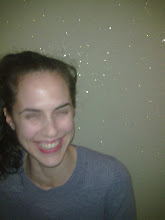It has interesting parts, for example when he discusses
Robert Town's original ending for "Chinatown" (Evelyn kills her father, she goes to jail, her sister/daughter is safe), and the process, led by Roman Polanski's different vision of the story, that brought to the actual, much darker, ending of the film (Evelyn dies, her father gets away with his crimes and regains control over his daughter/granddaughter).
On the other hand, Field keeps referring to "Lord of the Rings" in his examples, which I can't relate to at all.
I just read the "Endings and beginnings" chapter. Field argues that the first 10 minutes of a film are the most important ones – especially in terms of creating engagement so that your script gets read at all and not tossed aside. He also says that the ending should be a reflection of the beginning, and vice versa. In "Story" (which I read a few months ago), Robert McKee argues that the most important part of a movie is its end: it should be a satisfying and meaningful climax; a memorable image that captures the entire story (he quotes Francois Truffaut on that one); the writer's greatest leap of imagination. I guess they both know what they're talking about.
In retrospect, after having read other books, I see that some of McKee's strength comes from using expressions like "leap of imagination" - expressions that respect the readers (potential writers), and can truly inspire. That, and his massive eyebrows. You have to respect a man with such glorious eyebrows.

Since I'm still battling to find my own ending and beginning, I decided to do a series of posts about movie beginnings and endings that I love. I'll try to look both at my genre, comedies, and at films generally. Coming soon to a blog near you.







No comments:
Post a Comment